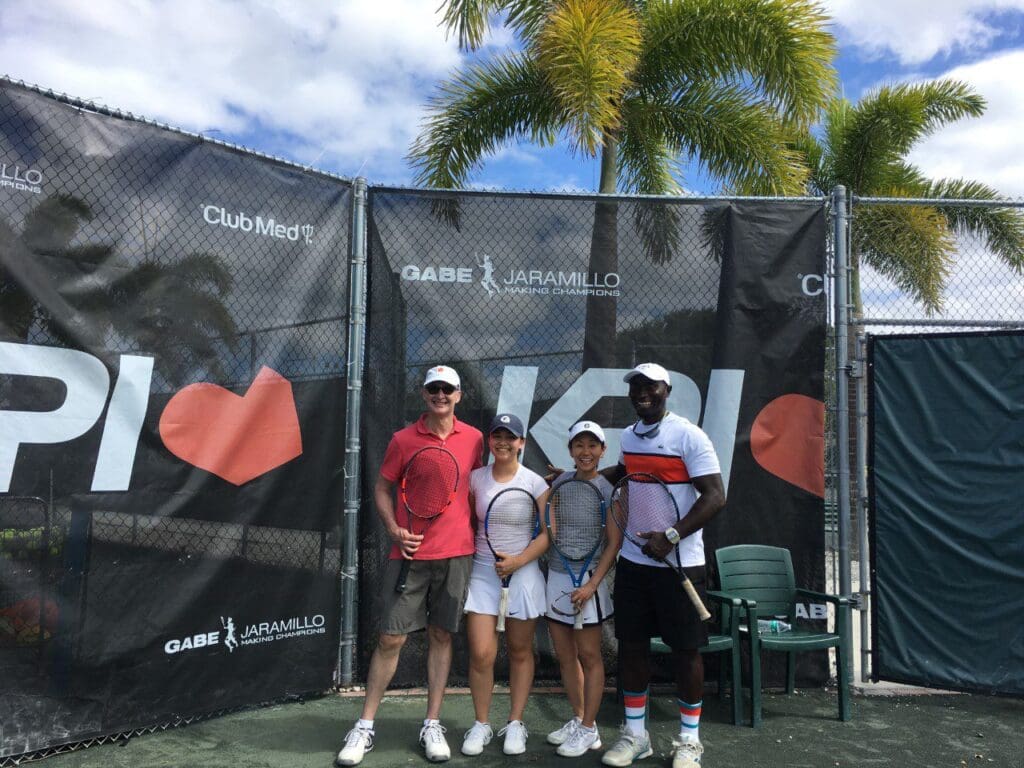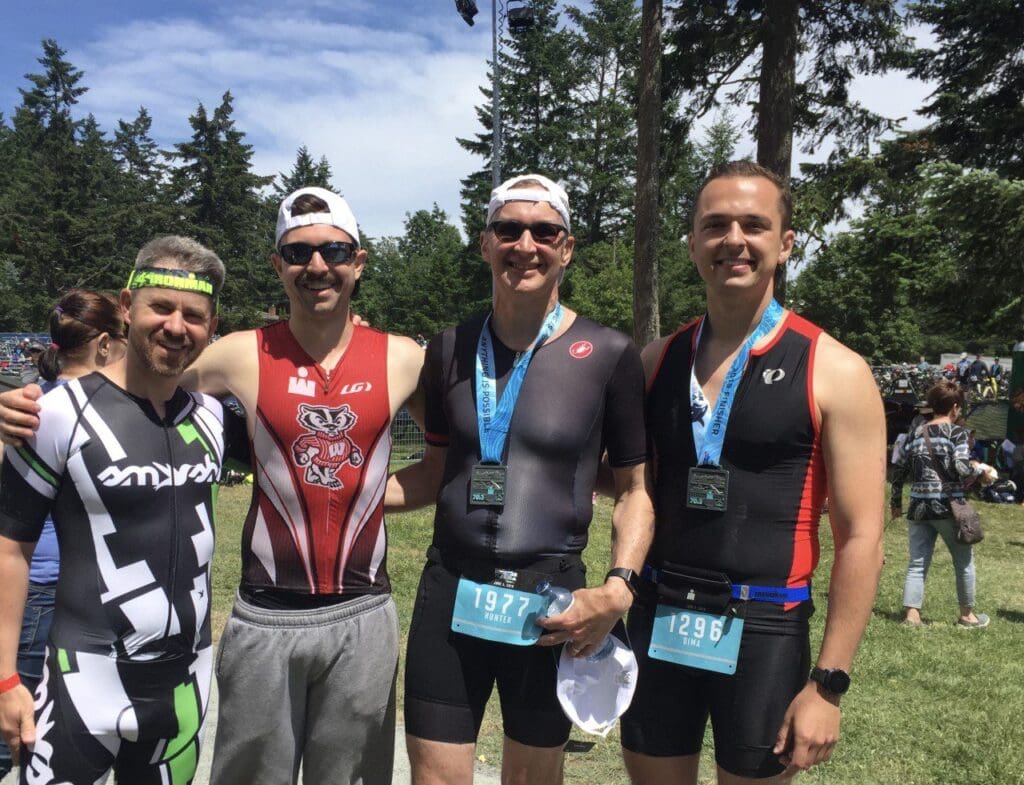As of Aug. 16, Hunter Wessells, MD, will serve as the president of UW Physicians, succeeding Tim Dellit, MD.
Wessells has worked at UW Medicine for over two decades. He’s the chair of the Department of Urology and directs a trauma and reconstructive urology fellowship at Harborview Medical Center.
Specializing in genitourinary trauma and reconstructive surgery, Wessells serves as guidelines panel chair for male urethral stricture for the American Urological Association, urology representative to the American College of Surgeons Committee on Trauma, and steering committee chair of the National Institute of Diabetes and Digestive and Kidney Diseases (NIDDK) sponsored Urinary Stone Disease Research Network.
Read on to learn what inspired him to go into healthcare, his goals for his new role and what he’s growing in his home garden.
Why did you go into medicine?
I went to college thinking I wanted to be a diplomat, but a free elective in Psychology 101 changed everything. My psychology professor said: “I think you should go into medicine.” I ended up following his advice and as it turned out, it was great advice.
I thought I wanted to be a psychoanalyst, so I did volunteer work at a few psychiatric hospitals in Washington, DC, and realized I was looking for a different approach to patient care than what I saw at the time. In medical school, I had a great mentor — the head of Urology at Georgetown — who was an amazing teacher and inspired a whole generation of people to go into urology. I met people I wanted to be like, which was the most important thing.
How long have you been at UW Medicine?
I’ve been here for 21 years. UW Medicine is amazing. There is always more to do, more collaboration to achieve and better outcomes to strive for, whether clinical, research or academic. The scale and scope of UW Medicine and UW are so vast, and you never hit a ceiling on your work because there is always somewhere to put your efforts and see a result.
How has your role as the department chair for Urology led you to your new role as president of UW Physicians?
I was the chief of Urology at Harborview for eight years before taking on the chair position. One of the things that inspired me to move forward with that role was the fantastic people in the department and my wanting to work with them and continue to advance the mission of our department — heal, comfort, teach, wonder. In a way, it’s the same reason why I applied to be the president of UW Physicians. UW Physicians has a well-defined mission and amazing people who I want to represent and help advance their work.
What will your role as UW Physicians president encompass?
At its core, the job is about the patients and the healthcare providers. How do we provide tools and resources for our 2,857 members of UW Physicians to be effective in caring for their patients?
What will be most familiar for me as I transition into this role is working with healthcare practitioners to ensure they can provide their best care. Aligning our efforts across entities with the School of Medicine and our hospitals is something we’ve really focused on in the Department of Urology. In my role as president of UW Physicians, it will be on a much larger scale.
What will be new for me is working with all 18 clinical departments that each have different ways of delivering patient care.
Another aspect of my job with UW Physicians that I will be diving into is the Faculty Practice Plan Solutions component, which deals with the revenue cycle and the administrative and business aspects of professional activity. It’s a core component of the practice plan and an area in which we will continue to focus significant efforts.
How do you plan to transition into this role:
The first phase will be understanding the full scope of the job and listening to the people doing the work already — the board of trustees, directors and staff of UW Physicians, and the members of the practice plan. I will also be working on defining my role in the entity alignment process.
What’s your vision for your work as president of UW Physicians?
My vision is to think of this practice plan as ultimately serving patients but with an important focus on the practitioners, their effectiveness, and their well-being and ensuring they have the resources to do the work they want to do. We are a patient- and family-centered institution and want to be the employer of choice. Being the employer of choice for healthcare practitioners hinges on allowing them to do their job and removing barriers preventing them from doing their best work. I will use a data-driven and transparent approach to measure these issues, keep them front and center and make sure that I as president and others, are accountable.
What are some of your initial goals?
To establish open and multiple lines of communication so our members can give input into what’s important, what we want to measure and what we want to focus on. We hold an annual team meeting in the fall, and one of my initial goals is to put in place a way for members to provide input in advance of the meeting, share gaps in the practice plan and where we can and should have a role.
Addressing healthcare disparities emerged as a theme of great importance to the UW Medicine community during the pandemic. As a practice plan, UW Physicians can play a role alongside the trustees and members to ensure that our policies and decisions align with efforts to address healthcare inequities and advance diversity among our workforce.
UW Medicine is refreshing our clinical strategic plans to address capacity challenges and allow growth of our clinical programs. Representing the trustees and members of UW Physicians in this process is one of the important functions of my job as president.
What are the biggest challenges that our physician workforce is facing?
We’ve been through an extremely intense, stressful and challenging pandemic, and it’s hard to go back to business as usual. It may be even harder to start planning for the growth and expansion that UW Medicine envisions in its strategic plan.
The complexity of our environment and variation across the sites of practices in terms of resources, access pressure and availability of beds poses another challenge.
The more we as a practice plan can make sure we use the same processes wherever a practitioner is working, the easier it will be for our members. We have to think about the patients, and we also have to think about the workforce when coming up with our strategic planning.
Why are you excited about taking on this new role?
We are a great institution, and we have so much potential. UW Medicine has the talent and the values to do the right things for the future of healthcare and the health of the public. The sky is the limit.
From our earliest Patients Are First efforts, I’ve felt incredibly fortunate to be able to make a difference in my patients’ lives. I can’t imagine not doing that; serving as Urology Chair and working with patients every week will provide a more complete understanding of our healthcare system as I start in my new role.
How would you describe your leadership style?
I aim to ensure a shared understanding of each situation and achieve consensus on the best path forward. It depends on enunciating core values, communicating a clear vision and demonstrating a willingness to do whatever is necessary to achieve our shared goals.
What do you like to do when you’re not working?
Just about any athletic endeavor interests me: I run, swim in open water, bike, row and play tennis. It’s a great way to stay healthy and interact with other people. I swim with a group of Harborview colleagues from the operating room in the mornings May through November on the tip of Mercer Island. I also play mixed doubles tennis with my wife regularly.

(Left to right) Wessells with his daughter, wife, and a tennis professional.
I’ve done one half-Ironman triathlon in Victoria, BC, with other residents and faculty members, and it was a great experience. I like taking on these types of challenges because that discipline carries over into work and emphasizes our commitment to the things we want to do. It comes down to “How can what you do at work help you in your personal life and vice versa?”

Wessells (second from right) competing at a half-Ironman triathlon in Victoria, B.C.
I also love food and have a vegetable garden. I try and grow perennials like asparagus, raspberries and rhubarb. I like to catch crabs and make crab cakes — that’s the ultimate Labor Day weekend goal, to catch enough crabs to make enough for friends and family.

Tomatoes from Wessells home garden.
What is something that people may not know about you?
I’m from Pennsylvania and I have three brothers. I am so fortunate that I have a great relationship with them and that we’ve grown even closer over the years. I’m organizing a reunion in August with my brothers and cousins for my mom, who is turning 88.


